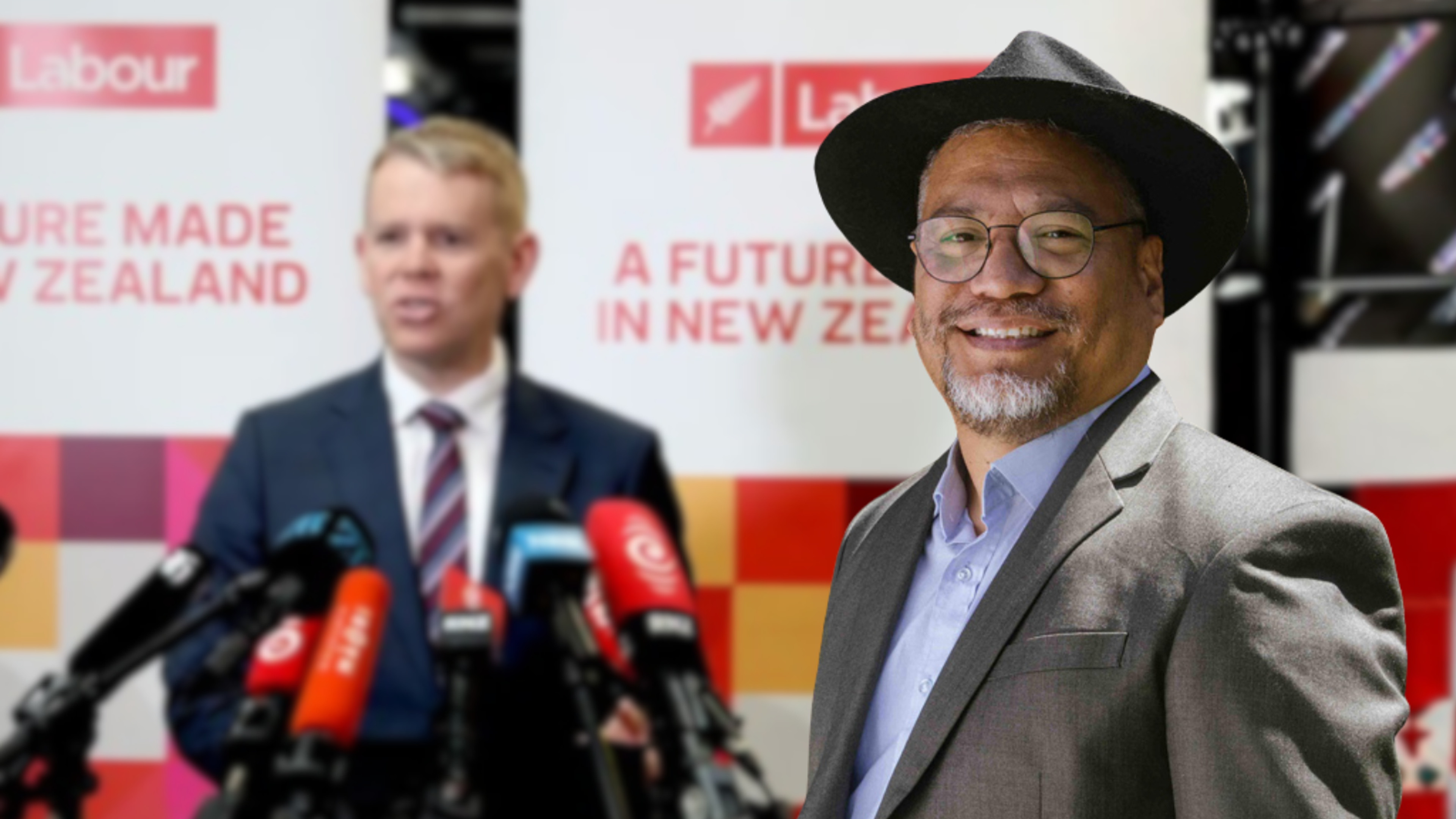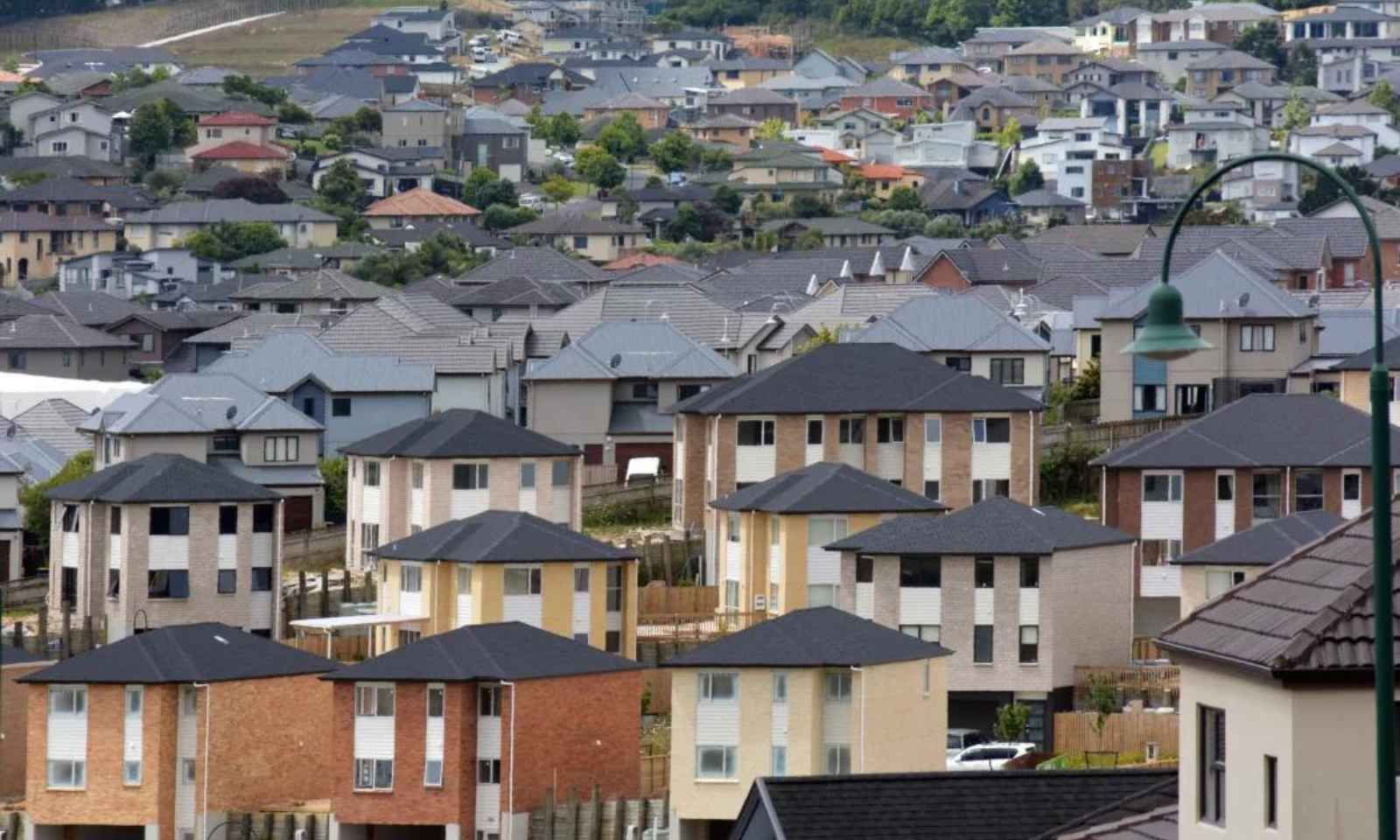

Labour leader Chris Hipkins launching the party's first key election policy this term.
Photo/File/RNZ/Marika Khabazi
Greens slam Labour's capital gains tax plan
Teanau Tuiono says three free GP visits may not be enough for large families.




Inked across lands: How Pacific tattoo art is thriving in Germany

US funding cuts threaten to 'dry up' future of Pacific scientists - expert




Inked across lands: How Pacific tattoo art is thriving in Germany

US funding cuts threaten to 'dry up' future of Pacific scientists - expert
Green Party MP Teanau Tuiono has criticised Labour’s new capital gains tax, calling it “quite narrow”.
He is unsure if it will raise enough revenue to fund the health and social services the government has promised.
The capital gains tax, set to start on 1 July 2027, will impose a 28 per cent tax on profits from the sale of commercial and residential properties, excluding family homes.
Personal assets such as farms, KiwiSaver accounts, shares, business assets, inheritances, and items like cars, boats, and art will be exempt.
Speaking with William Terite on Pacific Mornings, Tuiono says the Green Party’s proposed wealth tax would be more effective than Labour’s current plan.
“It does appear to be quite narrow, so my first question is whether there’s going to be enough tax take to actually pay for all the different things,” he says.
Watch Teanau Tuiono's full interview below.
He says that most of the country’s wealth is concentrated in a small number of people. “You have the richest 311 families who have more wealth than the poorest 2.5 million people … So being able to access that would actually be a fair way for them to pay their tax.”
In the party’s press release, Labour claims that nine out of 10 New Zealanders won’t pay tax on the property they own.” But in New Zealand, Pacific people have a homeownership rate of 16.8 per cent, less than half the national average of 42.1 per cent.
Revenue from the capital gains tax is intended to fund three free general practitioner (GP) visits for every New Zealander through a Medicard. The card, which will also be available as a mobile app, aims to integrate with GP and community health systems and support multiple languages and non-digital users.

Pacific people have a homeownership rate of 16.8 per cent in New Zealand, compared to the national average of 42.1 per cent. Photo/File
Labour leader Chris Hipkins says the policy will benefit families and the economy. “Right now, our tax system rewards property speculation instead of the people creating jobs and growing the economy. We will change that.
“Our simple, targeted tax changes will make sure those profiting from property pay their fair share, levelling the playing field for Kiwi businesses and innovation,” Hipkins says in a statement.
But Tuiono says the Medicard needs to go further to create equitable health outcomes, particularly for Pacific families.
“It would make some difference, but we have large families, and we need to move the dial actually quite considerably in order to get the change that I think we deserve in this country,” he says. “And does it include dental? Because teeth are incredibly expensive. You'd run out of your free visits pretty quickly, I think.”
Finance Minister Nicola Willis warns the capital gains tax would load more costs on businesses, investors and savers, and act as a handbrake on the economy.
“Many businesses depend on some form of commercial property - be it the shop building they own or the premises they work from. By levelling a new tax on land and buildings, Labour has effectively committed to a tax on businesses small and large - from the corner dairy to the local factory,” Willis says in a statement.

New Zealand's next general election will be held in 2026. Photo/File
Election campaign
As the election campaign heats up, Labour recently launched its first major policy announcement ahead of the 2026 General Election: an investment fund for local infrastructure and businesses.
This comes amid political turbulence involving potential left-wing coalition partners. Waatea News reported that Te Pāti Māori members voted to suspend Te Tai Tokerau member of parliament, Mariameno Kapa-Kingi.
Political polls also suggest that New Zealand First could play the coveted ‘kingmaker’ role if neither major party secures a strong majority. But Tuiono is sceptical about the compatibility of certain parties.
“New Zealand First has been part of a coalition which has trampled all over Māori rights, and Te Tiriti o Waitangi is incredibly important for us,” he says. “Shane Jones has just run roughshod over the environment, so that would require an incredible conversation to happen within the Greens for that to happen.”
His advice for Te Pāti Māori is simple: “We're a year out and I would encourage them to stabilise, because we are there in Parliament to represent our communities. Nobody likes hearing about our internal squabbles. We've had our own experiences with this as well, so you've got to be able to find a way to resolve it as quickly as possible.”
The official date for the 2026 general election is yet to be announced by the Prime Minister.